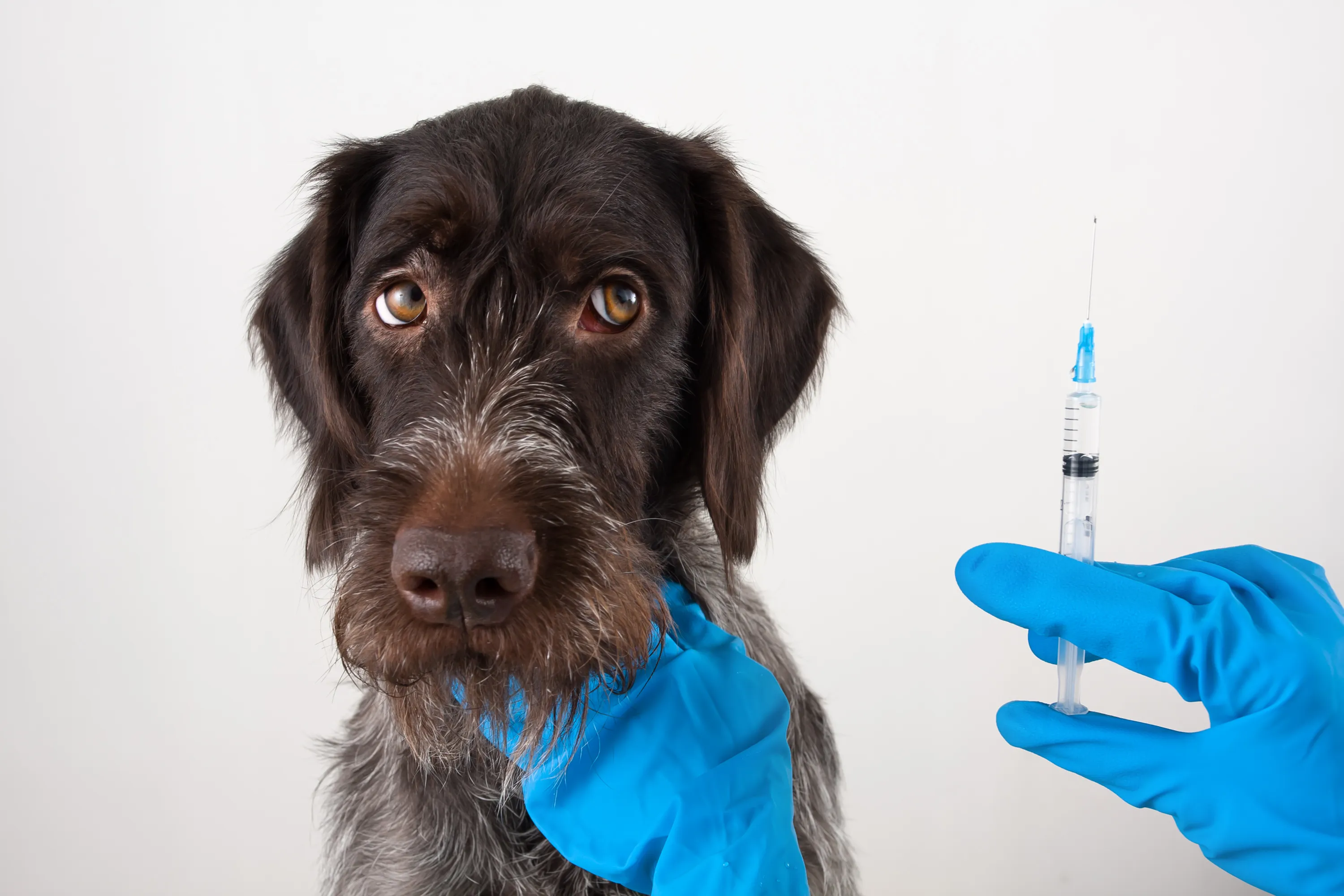Castration in dogs - advantages & disadvantages, optimal timing & procedure
The decision as to whether a dog should be neutered is one of the most important in the life of a responsible owner. It not only affects the health and behavior of the animal, but also has ethical, medical and financial aspects. In this article, we want to help you make an informed decision.

What is castration - and how does it work?
Castration is the surgical removal of the hormone-producing gonads - in males the testicles, in females the ovaries (in some cases also the uterus). The aim is to achieve permanent infertility and hormonal restructuring of the body. In rare cases, only the uterus is removed in bitches and the ovaries are left in the body.
The procedure is always performed under general anesthesia. In male dogs, the testicles are removed through an incision in the area behind the penis shaft; in female dogs, an incision is made in the abdominal wall. The duration of the procedure varies depending on the sex, state of health and weight of the dog - usually between 30 and 90 minutes. The dog is usually allowed to return home on the same day.
The healing phase then begins: the dog needs rest, the surgical wound must be kept clean and licking the scar must be avoided at all costs.
Important: Castration is a surgical procedure under general anesthesia
Even though castration is a routine procedure, it should not be underestimated. Every anesthetic carries risks - especially in older dogs or those with pre-existing conditions. A thorough veterinary examination is therefore necessary before the operation. The heart, circulation and possible pre-existing conditions are checked. Blood tests or a heart ultrasound may be useful in individual cases.
When is castration advisable?
In certain cases, castration is medically necessary - e.g. in the case of testicular tumors, cryptorchidism (undescended testicles) or uterine inflammation.
However, neutering can also be useful if a bitch is suffering from the symptoms of being in heat or if there is a risk that the male dog could unintentionally mate with a female dog. In non-medical cases, it must always be considered on an individual basis whether castration is really the solution to the problem. Your vet will help you to make the best decision for your furry friend.
Possible advantages of castration
- Prevention of unwanted pregnancy
- No stress due to heat or false pregnancy
- Less straying and running away
- Can reduce the potential for aggression towards conspecifics
- Can reduce territorial behavior such as marking
- Prevention of hormone-related diseases such as testicular cancer, uterine suppuration or breast cancer
Possible disadvantages of castration
- Change in metabolism → increased risk of obesity
- Potential personality changes such as insecurity or irritability
- Coat changes
- Higher risk of incontinence, especially in bitches (>20 kg body weight)
- Risk of orthopaedic problems if castrated too early
- Higher risk of prostate cancer
Our tip: Do you have questions about neutering? Are you unsure whether you should neuter your dog?
As a Calingo customer, you have the opportunity to chat or call a vet online free of charge and from the comfort of your own home. The online vet advice service supports you with questions about neutering and all other animal health issues.
Breast cancer risk in bitches
Breast cancer (mammary tumor) is the most common tumor in female dogs. Removal of the lumps usually requires extensive surgery.
Up to 25% of all non-spayed bitches develop a mammary tumor in the course of their lives, of which 20-50% are malignant. The development of such tumors is closely linked to the effect of reproductive hormones. Early spaying has a clear preventive effect: if the bitch is spayed before her first heat, the risk of developing a malignant mammary tumor is reduced by 99.5%. If spaying takes place between the first and second heat, the risk is still reduced by 92%. After this period, spaying largely loses its preventive effect.
Literature: Hashimoto et al. 2002; Gal et al. 2004; Kirpensteijn & Rutteman 2006; Dorn et al. 1968; Moulton et al. 1986; Schneider et al. 1969.
The right time
Sexual maturity occurs in males between the 6th and 12th month of life, in bitches between the 7th and 14th month. In bitches, it is often recommended that they are spayed around three months after their first heat - provided there are no medical reasons not to do so. Male dogs are neutered at six months at the earliest, and often later for larger breeds, as their physical development takes longer.
Your vet can advise you individually on when the procedure is appropriate and safe.
Castration is no substitute for education
Many owners hope that neutering will make their dog calmer or easier to handle. However, neutering is not a panacea for behavioral problems and is no substitute for sound training or behavioral therapy.
Aggression, anxiety, excessive barking or insecurity often have causes that are not hormonal. Neutering alone will not usually solve these problems. Ideally, you should seek support from experienced dog trainers or behavioral therapists when dealing with behavioral issues.
Hormonal castration on trial: the reversible alternative
If you are still unsure whether castration is the right decision, it is possible to temporarily "test" the effect of castration with a so-called castration chip ("Suprelorin®" implant). The implant reduces libido and testosterone levels in male dogs for six to twelve months. The duration of effect varies from individual to individual. This allows you to observe how your dog behaves without hormones - without any irreversible intervention. This method is currently only approved for male dogs.
What does neutering cost?
The costs vary depending on the veterinary practice, sex and weight of the dog:
- Male dog: approx. 400-600 CHF
- Bitch: approx. 700-900 CHF
In addition, there may be costs for preliminary examinations, medication, aftercare or hospitalization in the event of complications.
Why dog insurance makes sense
Good dog insurance also covers the costs of preventive treatment to prevent illness and promote a long and healthy life. Calingo's accident & health insurance protects you from high unexpected costs and gives you the security of being able to act quickly and comprehensively in the event of an emergency.
Conclusion: Castration is not a standard solution - but an individual decision
Whether and when your dog should be neutered depends on many factors: Health condition, behavior, living conditions and medical risks. Take the time to make an informed decision - together with your vet.
It is often recommended that female dogs are neutered around three months after their first heat - provided there are no medical reasons not to do so. Male dogs are neutered at six months at the earliest, often later for larger breeds as their physical development takes longer, and your vet can advise you individually on when the procedure is appropriate and safe.
Yes, neutering can change your dog's behavior, but the extent depends on the individual dog and is often not the solution to behavioral problems that are not directly related to sex drive.
No, neutering my dog is not required by law in Switzerland.
After neutering, your dog needs to rest and take it easy - avoid jumping, running around and long walks. Make sure that he does not lick the wound (body or neck collar) and check the scar daily. Give medication as prescribed and contact the vet immediately if there are any abnormalities.
From pet parents for pet parents
The health of your furry nose is our job









